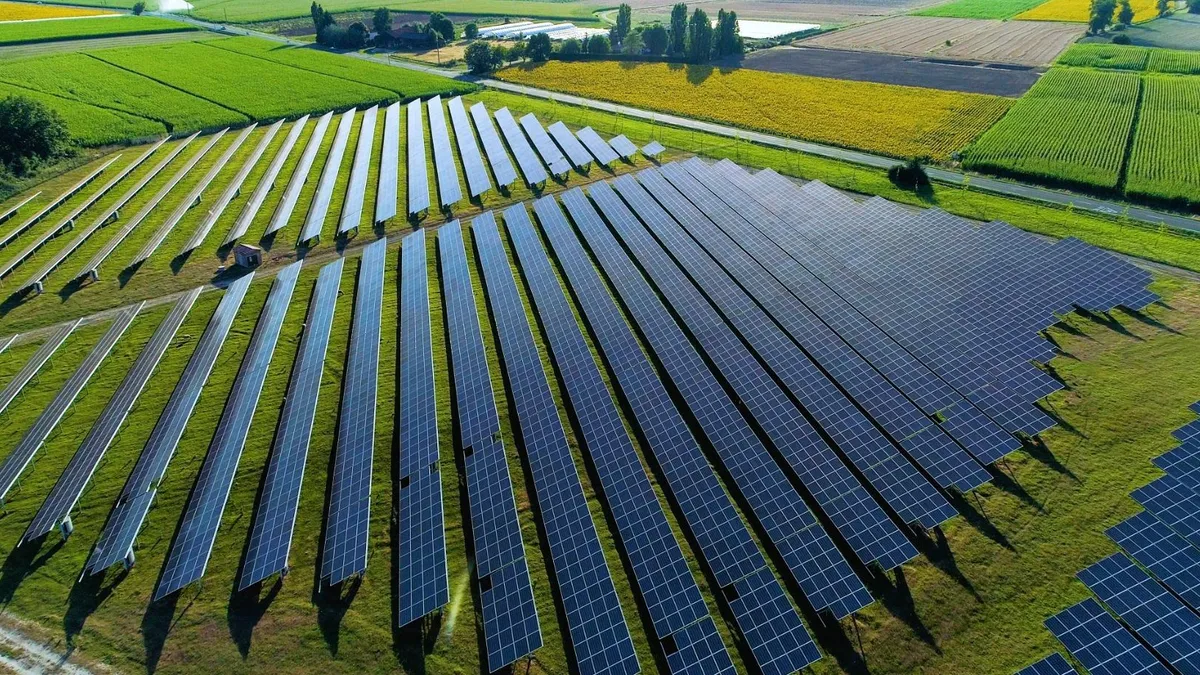Dive Brief:
-
Private investment in renewable energy projects hit an all-time high with over $10 billion devoted to renewable energy in the past year, Supria Ranade, head of power markets for SoftBank Group subsidiary SB Energy, told an audience at the RE+ conference in Anaheim, California last week.
-
In addition to the overall increase in investment, the renewable energy market is also seeing a greater diversity of investors looking to put money into renewable energy projects and technology, according to Britta von Oesen, partner and managing director at CohnReznick Capital.
-
“There is a lot of capital chasing this space and lots of funds being raised looking for deployment,” von Oesen said.
Dive Insight:
Raising capital for renewable energy projects has become significantly easier over the past 12 months — and will likely only accelerate in the wake of the Inflation Reduction Act, financiers at the RE+ conference agreed.
Once largely limited to niche, purpose-driven funds, the number of investors looking to get in on the renewable energy boom has grown rapidly, panelists said. Even types of investors that might be considered more conservative than most, including pension funds, have begun to enter the market in recent months, von Oesen said.
“I had one deal where I think we had every type of investor end up at the finish line with a bid,” she said. “Insurance, independent power producers, domestic utilities, infrastructure, private equity — a pension fund showed up. Really it’s not hard to find the capital these days. It’s hard to find the right capital, and that’s what we spend a lot of time doing.”
As competition between investors has grown, the kinds of projects they’re willing to entertain has also expanded. Individual wind and solar projects have captured most of the private investment to enter renewable energy to date, but the latest wave of capital has shown growing interest in new options such as offshore wind, energy storage and even electric vehicles, according to David Felix, senior director of energy development and strategy at Inspiration Mobility. Private investors have also expressed more interest in projects at earlier stages of development, said Eric Stam, senior director of structured finance at Sol Systems. But most investors have so far stopped short of buying the development platforms themselves, he said.
Volatile supply chains and increasing fuel and energy costs have helped bring renewable energy into the mainstream by putting more pressure both on investors’ and consumers’ balance sheets, Ranade said. Between that and the increasingly apparent impact of climate change, customers and stockholders alike have begun to demand that companies make real efforts toward environmental and social progress, von Oesen said. Where ESG goals were a nice to have — or even mere greenwashing — just two to three years ago, she said, they’re now essential and pushing even greater numbers of private and corporate investors toward renewable energy deals. And the Inflation Reduction Act will likely further increase interest in renewable energy investments, she said, by creating a ten-year period of stability for federal tax credits and policy support.
“I’m not going to lie, it’s a good time to be a banker,” von Oesen said.














